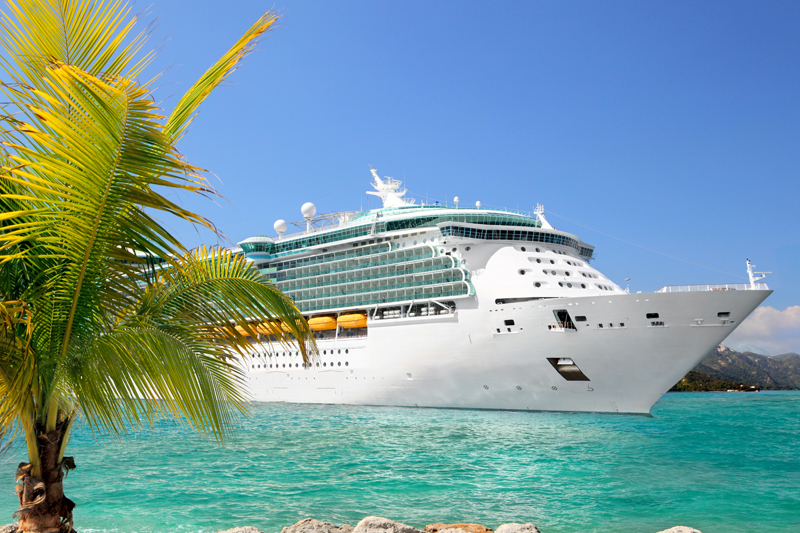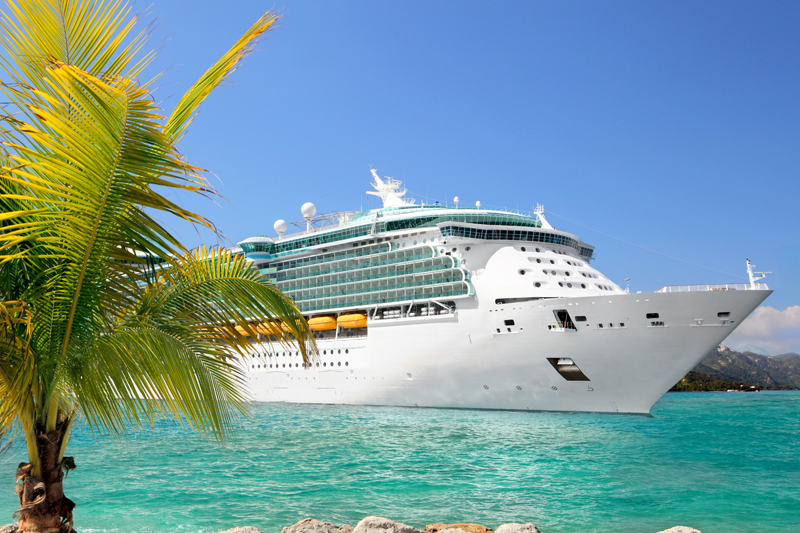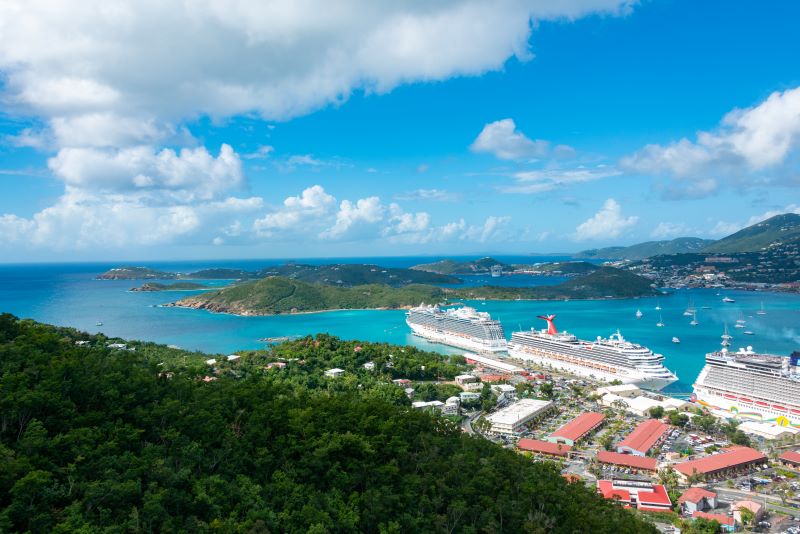10 Ways To Manage Flight Delays And Cancellations

Severe weather and other flight disruptions are making headlines this year. These flight cancellations and delays are particularly stressful for vacationers since missing flights can lead to significant expenses and even wipe out an entire trip. This is particularly true for cruises, where flight delays and cancellations can result in missing the ship.
As more passengers are traveling by air now, carefully evaluating your flight plans is essential. Severe summer storms have caused massive delays and cancellations over the last few weeks. In addition, pilot and air traffic controller shortages are also creating major problems.
Flight issues are also common during the winter through early spring when snow and hazardous weather can occur. It's important to keep the possibility of bad weather in mind and plan accordingly.
Here are ten flight tips to help you manage airline delays and flight cancellations, so you and your luggage can arrive at your vacation destination on time.
1. Work With A Top-Notch Travel Advisor
Working with a good travel agent is helpful whenever you’re planning a vacation, but top travel advisors are even more essential when planning a cruise. A travel advisor can review all possible flights to your vacation destination and help you choose the airline with the best track record and most available options. This will provide you with the most rebooking options if flight delays or cancellations arise. Travel advisors can provide valuable assistance, such as keeping clients posted on itinerary changes, helping to reschedule flights as needed, and locating overnight accommodations if cancellations or significant delays occur.
2. Fly Direct Or Plan Long Layovers Between Flights
It’s always wise to avoid flight connections when possible, particularly in this year’s travel environment. If you must take multiple flights to reach your destination, make sure to allow plenty of time for connections. While airlines often consider a 40-50 minute connecting time between flights to be legal, that will provide a minimal cushion if there’s a weather or mechanical delay. Allowing least three hours for connections can be wise in the current environment. This is particularly true when traveling with children, as getting from gate to gate often takes longer. If you have a choice of connection cities, stay away from those prone to significant weather and traffic delays. These include Newark, New York’s LaGuardia and JFK airports, Chicago, Orlando, and Denver.
3. Select The Earliest Flight Possible
Afternoon thunderstorms and high temperatures can cause considerable travel delays during the summer. Morning flights are the best option for avoiding these issues, particularly if connections are required. Some airlines and flights currently have better on-time performance, while others are showing a pattern of significant flight delays and cancellations. Before booking your flights, check out each of your option’s arrival statistics. Some airlines and online booking engines provide flight statistics. The FlightStats.com and Flightaware.com websites can also be good sources of information. A good travel agent can provide insights as well.
4. Plan To Arrive Several Days In Advance Of Your Cruise
Flight disruptions are unpredictable, and it’s impossible to know what weather issues will arise. Given this, the best thing to do is to arrange to arrive at your embarkation port several days before your cruise. Doing so will cost more money, but it will provide added peace of mind and greater assurance of getting to your cruise on time. While arriving a day in advance can be fine for domestic cruise departures, two days of cushion would be better these days. If you will be flying internationally, give yourself even more leeway. This will allow you more time to rebook your flights if problems arise. The added days will also give you more time to explore your embarkation destination and adjust to time zone changes.
5. Travel With Only Carry-on Luggage
Avoid checking luggage if at all possible. This will allow you to be more flexible if your flight severely delayed, as airlines will not change reservations involving checked baggage. If your flight is canceled, traveling solely with carry-on luggage will also help you avoid lost suitcase headaches that can arise if you have to be rebooked on another flight.
6. If Checked Baggage Is A Must, Use AirTags
While it’s great to travel with only carry-on luggage, sometimes that’s not possible. If you must check bags, make sure each contains an Apple AirTag or another similar small tracking device. AirTags allow you to know where your luggage is while you are traveling. You can track your checked baggage using the Find My app and help the airline find it if your luggage is lost. If you don’t have Apple devices, Samsung SmartTag and Tile Mate will also work well.
7. Choose Larger Planes When Possible
Record-breaking summer temperatures are in the news this year. These heat waves can cause issues for smaller planes at some airports, particularly for flights originating or stopping in Las Vegas, where summer temperatures can soar. Some regional jet aircraft, including Bombardier CRJ and Embraer planes, can only operate at a maximum temperature of 118 degrees, while large Boeing aircraft can handle weather up to 130 degrees.
8. Consider Driving To Your Embarkation Port
If driving to your ship’s homeport is possible, you may want to consider this alternative for added peace of mind. If you’re traveling with family members, driving could also offer potential cost savings. A road trip could also make sense if your flight is canceled. You could drive the entire way or fly to an alternate airport and then pick up a rental car to get your cruise embarkation port.
9. Purchase Travel Insurance
Make sure to purchase trip insurance to protect your vacation investment in case of unforeseen air and transportation snafus, family illness, or another issue. However, when buying your insurance, it’s important to ensure your flights are wrapped into the coverage. Some vacationers buy insurance directly from their cruise line when purchasing their cruise and then obtain their flights separately. When a flight problem arises, they find that their trip insurance only covers the cruise. Make sure you understand what is covered by the trip insurance policy you’re purchasing and read the fine print carefully. For best results, call the travel insurance company directly and ask questions over the phone to understand intricate coverage issues. Websites like InsureMyTrip, SquareMouth, and TravelInsurance.com also make comparing and purchasing travel insurance policies easy.
10. Monitor Weather Predictions
Sometimes the weather can cause even the most carefully arranged plans to go awry. As your departure date gets closer, monitor weather conditions constantly. If it appears that a storm may affect your travel plans, check with your airline to find out what options are available. These may include departing a day early if not doing so already or leaving on an earlier flight. Familiarize yourself with your rights under your airline's contract of carriage, and be proactive. Do not wait for the airlines to contact you. By then, many of the best flight options may already be gone. If your flight is not canceled, the airlines may not contact you at all. You are responsible for deciding what’s best for your specific circumstances and taking the appropriate steps to arrive at your cruise vacation on time. Download your airline's app, and sign up for your airline's notification alerts. That way, you can monitor your flight and know what's going on as soon as possible.
As more passengers are traveling by air now, carefully evaluating your flight plans is essential. Severe summer storms have caused massive delays and cancellations over the last few weeks. In addition, pilot and air traffic controller shortages are also creating major problems.
Flight issues are also common during the winter through early spring when snow and hazardous weather can occur. It's important to keep the possibility of bad weather in mind and plan accordingly.
Here are ten flight tips to help you manage airline delays and flight cancellations, so you and your luggage can arrive at your vacation destination on time.
1. Work With A Top-Notch Travel Advisor
Working with a good travel agent is helpful whenever you’re planning a vacation, but top travel advisors are even more essential when planning a cruise. A travel advisor can review all possible flights to your vacation destination and help you choose the airline with the best track record and most available options. This will provide you with the most rebooking options if flight delays or cancellations arise. Travel advisors can provide valuable assistance, such as keeping clients posted on itinerary changes, helping to reschedule flights as needed, and locating overnight accommodations if cancellations or significant delays occur.
2. Fly Direct Or Plan Long Layovers Between Flights
It’s always wise to avoid flight connections when possible, particularly in this year’s travel environment. If you must take multiple flights to reach your destination, make sure to allow plenty of time for connections. While airlines often consider a 40-50 minute connecting time between flights to be legal, that will provide a minimal cushion if there’s a weather or mechanical delay. Allowing least three hours for connections can be wise in the current environment. This is particularly true when traveling with children, as getting from gate to gate often takes longer. If you have a choice of connection cities, stay away from those prone to significant weather and traffic delays. These include Newark, New York’s LaGuardia and JFK airports, Chicago, Orlando, and Denver.
3. Select The Earliest Flight Possible
Afternoon thunderstorms and high temperatures can cause considerable travel delays during the summer. Morning flights are the best option for avoiding these issues, particularly if connections are required. Some airlines and flights currently have better on-time performance, while others are showing a pattern of significant flight delays and cancellations. Before booking your flights, check out each of your option’s arrival statistics. Some airlines and online booking engines provide flight statistics. The FlightStats.com and Flightaware.com websites can also be good sources of information. A good travel agent can provide insights as well.
4. Plan To Arrive Several Days In Advance Of Your Cruise
Flight disruptions are unpredictable, and it’s impossible to know what weather issues will arise. Given this, the best thing to do is to arrange to arrive at your embarkation port several days before your cruise. Doing so will cost more money, but it will provide added peace of mind and greater assurance of getting to your cruise on time. While arriving a day in advance can be fine for domestic cruise departures, two days of cushion would be better these days. If you will be flying internationally, give yourself even more leeway. This will allow you more time to rebook your flights if problems arise. The added days will also give you more time to explore your embarkation destination and adjust to time zone changes.
5. Travel With Only Carry-on Luggage
Avoid checking luggage if at all possible. This will allow you to be more flexible if your flight severely delayed, as airlines will not change reservations involving checked baggage. If your flight is canceled, traveling solely with carry-on luggage will also help you avoid lost suitcase headaches that can arise if you have to be rebooked on another flight.
6. If Checked Baggage Is A Must, Use AirTags
While it’s great to travel with only carry-on luggage, sometimes that’s not possible. If you must check bags, make sure each contains an Apple AirTag or another similar small tracking device. AirTags allow you to know where your luggage is while you are traveling. You can track your checked baggage using the Find My app and help the airline find it if your luggage is lost. If you don’t have Apple devices, Samsung SmartTag and Tile Mate will also work well.
7. Choose Larger Planes When Possible
Record-breaking summer temperatures are in the news this year. These heat waves can cause issues for smaller planes at some airports, particularly for flights originating or stopping in Las Vegas, where summer temperatures can soar. Some regional jet aircraft, including Bombardier CRJ and Embraer planes, can only operate at a maximum temperature of 118 degrees, while large Boeing aircraft can handle weather up to 130 degrees.
8. Consider Driving To Your Embarkation Port
If driving to your ship’s homeport is possible, you may want to consider this alternative for added peace of mind. If you’re traveling with family members, driving could also offer potential cost savings. A road trip could also make sense if your flight is canceled. You could drive the entire way or fly to an alternate airport and then pick up a rental car to get your cruise embarkation port.
9. Purchase Travel Insurance
Make sure to purchase trip insurance to protect your vacation investment in case of unforeseen air and transportation snafus, family illness, or another issue. However, when buying your insurance, it’s important to ensure your flights are wrapped into the coverage. Some vacationers buy insurance directly from their cruise line when purchasing their cruise and then obtain their flights separately. When a flight problem arises, they find that their trip insurance only covers the cruise. Make sure you understand what is covered by the trip insurance policy you’re purchasing and read the fine print carefully. For best results, call the travel insurance company directly and ask questions over the phone to understand intricate coverage issues. Websites like InsureMyTrip, SquareMouth, and TravelInsurance.com also make comparing and purchasing travel insurance policies easy.
10. Monitor Weather Predictions
Sometimes the weather can cause even the most carefully arranged plans to go awry. As your departure date gets closer, monitor weather conditions constantly. If it appears that a storm may affect your travel plans, check with your airline to find out what options are available. These may include departing a day early if not doing so already or leaving on an earlier flight. Familiarize yourself with your rights under your airline's contract of carriage, and be proactive. Do not wait for the airlines to contact you. By then, many of the best flight options may already be gone. If your flight is not canceled, the airlines may not contact you at all. You are responsible for deciding what’s best for your specific circumstances and taking the appropriate steps to arrive at your cruise vacation on time. Download your airline's app, and sign up for your airline's notification alerts. That way, you can monitor your flight and know what's going on as soon as possible.

Related Articles
Editor's Picks Articles
Top Ten Articles
Previous Features
Site Map
Content copyright © 2023 by Nancy Schretter. All rights reserved.
This content was written by Nancy Schretter. If you wish to use this content in any manner, you need written permission. Contact Nancy Schretter for details.







